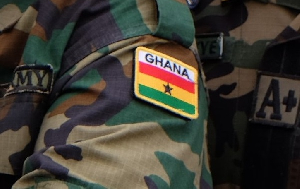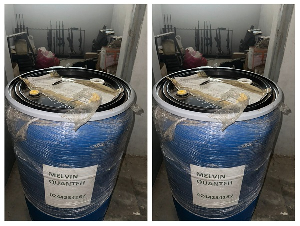 66 and 28 percent households in the Upper West and Upper East regions respectively
66 and 28 percent households in the Upper West and Upper East regions respectively
The Ghana National Household Registry (GNHR), a unit of the Ministry of Gender, Children and Social (MoGCSP), will from Monday, July 20, 2020 begin collection of data on poor and vulnerable persons in the North East region.
At a ceremony to launch the exercise at Bunkurugu in the North East Region, the Regional Minister, Mr Solomon N. Boar, reiterated government’s commitment to fighting poverty across all levels in the country.
"We believe that the solution to poverty requires a comprehensive structural programme," he said.
Mr Boar said government had made huge investments in the public sector to help individuals out of poverty.
He mentioned the National Health Insurance Scheme (NHIS), Capitation Grant, School Feeding Programme, Livelihood Empowerment Against Poverty (LEAP) and other public sector initiatives as investments to help fight poverty among Ghanaians.
Mr Boar said the GNHR data collection exercise would serve as a criterion for social protection intervention programmes that would lift the vulnerable and poor from poverty in the North East Region.
He added that the data collected would help government to successfully roll out its intervention programmes in the region.
He further encouraged residents of the region to avail themselves and observe the necessary protocols regarding the novel coronavirus.
Explaining the details of the exercise, the National Coordinator of the GNHR, Dr Prosper Laari said the exercise was to help policy makers in the decision-making process while serving as criteria for the implementation of social intervention programmes.
The data, he said, covered various dimensions including education, health and agriculture among others.
According to him, the registry had over the last five years commenced the process of compiling a nationwide data on the poor and vulnerable for social protection programmes such as LEAP to select eligible beneficiaries.
He mentioned that the GNHR had successfully completed data collection on households in the Upper West, and Upper East regions in 2016 and 2018 respectively.
Dr Laari indicated that a total of 137,565 households in the Upper West and 184,125 households in the Upper East regions were successfully registered by the GNHR.
Out of the numbers registered in the Upper West region, 66 percent were categorized as extreme poor, 18 percent as poor and the remaining 16 percent as non-poor households while in the Upper East region, 28 percent had been categorized as extreme poor, 37 percent as poor and 35 percent as non-poor households.
"For the first time we have put in place a system built with the thrust of action and purpose that ensures that we are taking every necessary step to address poverty, hunger and deprivation," Dr Laari said.
The GNHR is currently undertaking field activities to collect data in North East, Savannah and Northern regions.
The National Coordinator said similar exercises would be carried out in the Central and Volta regions by the end of December 2020 subject to the speed of completion in these three
He added that the Registry would ensure that all safety protocols regarding COVID-19 would be adhered to in conducting the exercise to ensure the health and safety of all persons involved in the exercise.
For her part, the Director of Social Protection at the MoGCSP, Dr Rita Owusu Amankwah said the GNHR is critical to the successful implementation of social protection interventions in Ghana and urged participants to avail themselves toward the successful implementation of the exercise.












